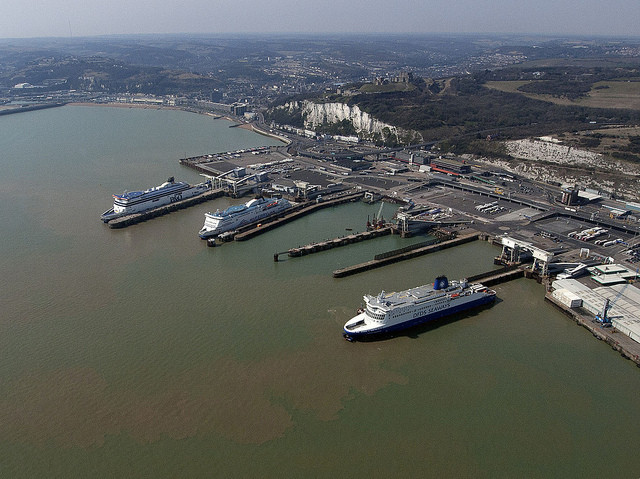The white paper on the customs bill details the UK government’s approach to a future customs regime and its framework.
The government is guided by three objectives: “ensuring that UK-EU trade is as frictionless as possible; avoiding a hard border between Ireland and Northern Ireland; and establishing an independent international trade policy.”
Currently, the rules on customs are mostly in EU law that is directly applicable in the UK, which means that domestic customs legislation has been unnecessary. The white paper states that the government will need to legislate for a new customs regime to be in place by March 2019 “that can give effect to whatever arrangements are agreed with its European partners”, including if there is no deal. Whatever the outcome, the UK will need to change the cross-border rules for the VAT and excise regimes after Brexit.
The paper reiterates that the UK will leave the customs union, and proceeds to list all the arrangement where currently customs, VAT or excise is/is not payable.
Primary legislation will set the framework to a new customs regime, and to amend the VAT and excise regimes, secondary legislation will set rules on administration, collection and enforcement. The white paper states among other things that the government will have the flexibility to “to make future amendments regarding customs duty” and “amendments to primary legislation”.
The reasoning for these delegated powers is that “parliamentary timescales” may impede giving effect to the outcome of the negotiations and “damage the UK’s negotiating position.” Steve Peers, a professor of EU law at the university of Essex, has argued that this bill will give “lots of power to the government--including power to amend Acts of Parliament. Another feast for Henry VIII!”.
Two options, one of which is “unicorny”
After an interim period, which should contain a “new and time-limited customs union between the UK and the EU” to replace the current customs union, the British government has outlined two options.
The second option, which is entitled “new customs partnership”, was described in the paper as so “innovative” and “untested” that the current customs bill “could not be drafted to specifically provide for the implementation of this outcome.” Peers called it “unicorny”.
This leaves the first option, which is a “highly streamlined customs arrangement”, includes a continuous waiver from the requirement to submit entry and exit summary declarations for goods being moved between the EU and the UK, remaining a member of the common transit convention, negotiating mutual recognition of authorised economic operators, and negotiating customs cooperation. The paper also suggested unilateral measures for imports.
Contingency scenario: no deal
The white paper stated that “while the government hopes for and expects a mutually beneficial outcome to negotiations, it is prudent for both government and businesses to plan for a contingency scenario, where the UK leaves the EU without a negotiated outcome on customs arrangements.”
The bill would include the possibility to establish a standalone customs regime and a goods classification system in line with WTO obligations. The same customs duty would then apply to all the countries which don’t have a trade agreement with the UK (of which there will be many, as most UK trade deals have been signed by the EU, and which all have to be negotiated in parallel to the EU withdrawal).
Ro-ro ports, airports and Northern Ireland will be most affected by a no deal. The paper looked at how this scenario would affect other areas, such as movement of goods by individuals via travel.
Reactions
The Institute for Government has published a paper on the customs bill which stated that:
“Introducing customs declarations after Brexit would affect up to 180,000 UK traders and could cost traders over £4 billion a year, according to the IfG analysis paper ‘Implementing Brexit: Customs’. The paper says that preparing the UK border for Brexit is a huge task with a hard deadline. Being ready for day one requires the Government to orchestrate change across more than 30 government departments and public bodies, as well as over 100 local authority organisations.”
It continues that:
“The authors say that while most people recognise the customs ‘cliff edge’ in the UK, not enough attention is paid to a similar cliff edge on the other side of the English Channel. Unless Calais, Dunkirk, Rotterdam and other European ports are also ready for Brexit, British exporters will face significant disruption to their supply chains. Preparation on both sides is particularly vital in the case of the Irish land border. They also note that the government must successfully deliver its new customs technology programme to avoid disruption at the border after Brexit--but say the system is already facing significant issues because of constricted timelines.”
